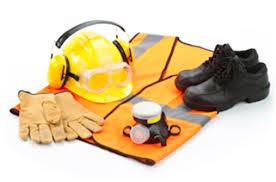Mining jobs often seem to people like relics from a past era, barely viable in this modern world. That is until people realize that it is the 21’st century and that we do things a little bit differently now. For a start, it is less about ax picking and more about modern equipment handling, safety and getting used to the schedule. Not all mines are the same: there will be some different jobs available, and a set of particular requirements. Coal mining and metalliferous mining will require different safety induction programs to begin with. Next, it is worth mentioning that you will not be expected to do your job on meager rations and for a measly paycheck while the song “Sixteen Tons” plays in the background.
The money is actually quite good – people doing entry level mining jobs can look forward to anywhere between 65.000 and 90.000 Rand a year, and more experienced/highly trained hard hat workers can expect a paycheck upwards of 100.000 Rand. Another thing to get excited about is the fact that there are many mining jobs that require practical and scientific skills. Things like geo-science, geology and mechanical engineering, as well as welding, carpeting and cooking are essential to running a mining operation. There are a lot of jobs for people of low, mid and high levels of both experience and education. And as far as indiscriminate workplaces go, South African mining companies are hard to beat as they provide equal opportunity to both male and female employees and don’t discriminate against age either.
Now before you become enchanted with these opportunities to earn some good money for you and your family, there are some things you need to know about the business and how things work. No sense in getting caught up in something without doing some research and thinking things through.
Getting started
First off you will need to determine where you fit in. This will be determined by:
a) Your level of skill,
b) Your level of experience
c) Your level of education
Those with some skills but no experience are often termed “Greenskins” and will be doing mostly menial task, perhaps as an assistant to a senior worker or in areas that have less to do with actual mining and more to do with “housekeeping” like food preparation, cleaning, etc. Now there are positions like accountant or software engineer that are not specifically mining jobs, but that will not be available to people with no experience in their respective fields. So the first thing you need to do before taking Standard 11 Generic Induction Course, is to take a look at the skill sets at your disposal and determine whether they can be useful in a one of the mining jobs available. For instance if you have experience driving a forklift or similar piece of machinery, this can easily translate into the mining environment, however no matter how much experience you might have driving a semi-truck, you will need to complete a course before you will be allowed to drive a huge Dump Truck. Semi-truck drivers might feel more at home applying for a position driving road trains.
Knowing what job opportunities are available is a key component of writing a good resume. The company might have a spot open for additional medical staff, chefs, welders or even personal trainers and IT staff. Don’t think that you can’t find a mining job just because you can’t drill, but if you can drill put it on the resume. Often times a Greenskin will be put to work alongside an experienced driller and will have a unique opportunity to learn the ins and outs of the job through apprenticeship. This is a good way to get promoted down the line.
Traveling to work
The people who are best off are the ones living near the mine. However a lot of people looking for work won’t be able to relocate their family to a mining town and will need other methods of getting to work. There are two options available: DIDO and FIFO.
DIDO (drive in drive out) – if you live reasonably close, you will be able to drive and remain in shared accommodation until the end of your roster, upon which you will be able to drive home.
FIFO (fly in fly out) – in this case you live fairly far from the mining site so the company will fly you in, you stay in shared accommodation for the duration of your roster and then fly back home.
As websites say, South African mining jobs can be a bit easier on your family life than say a mining job in Africa, because the rosters tend to be a bit more manageable – a week on the job followed by a week off. It can be challenging for some people to spend several days in a row or a couple of weeks at a time away from home, but on the other hand you get to spend a lot more time with your family when your roster ends. Someone working a few miles from his house can often spend very little time around the house, which can be difficult if the person has children, especially if the husband and wife both work. With a FIFO option you might be a long way from home for extended periods, but you will also be able to spend day after day with your family, get to do some work around the house, hit the gym or focus on some hobbies. It is up to you to decide if your personal life can handle all the traveling.
There you have it, mining jobs offer a good annual paycheck for a wide range of skills. You have a chance to get ahead in your chosen career path and get additional training on the job or through specialized courses. On the other hand it requires total dedication and some getting used to, particularly if you are traveling to work via airplane, so weigh the pros and cons carefully as it is ultimately about whether or not you can adapt to the job conditions.



